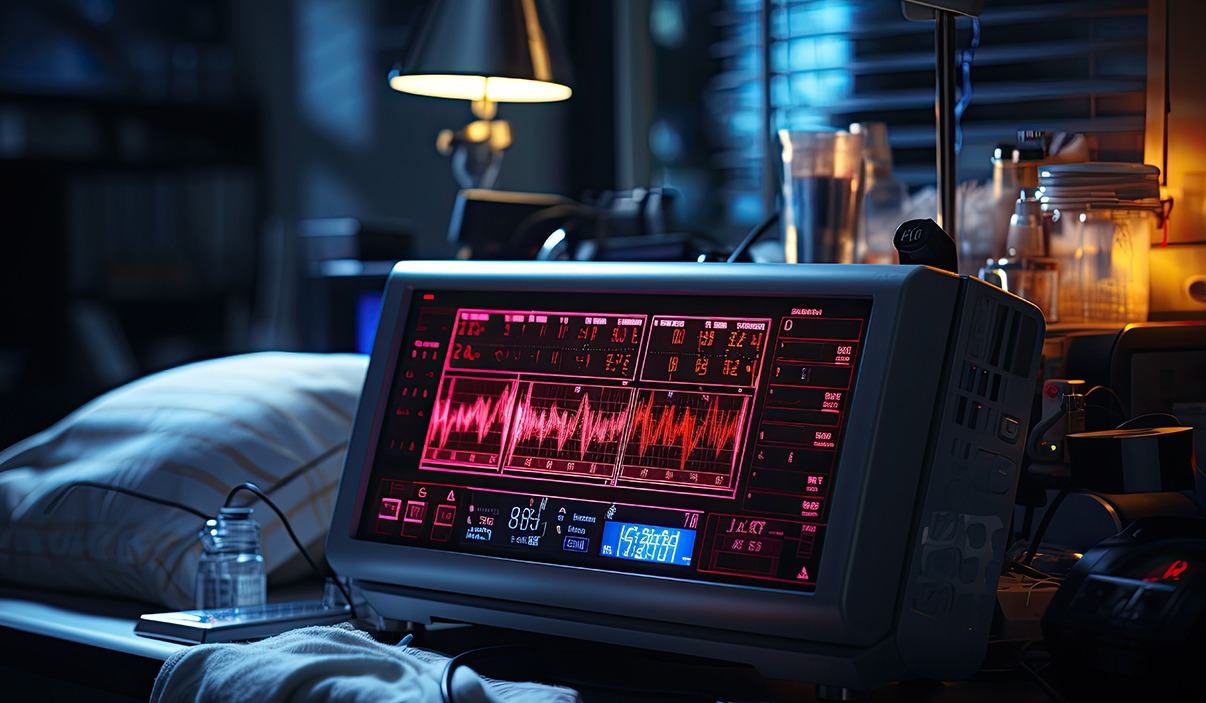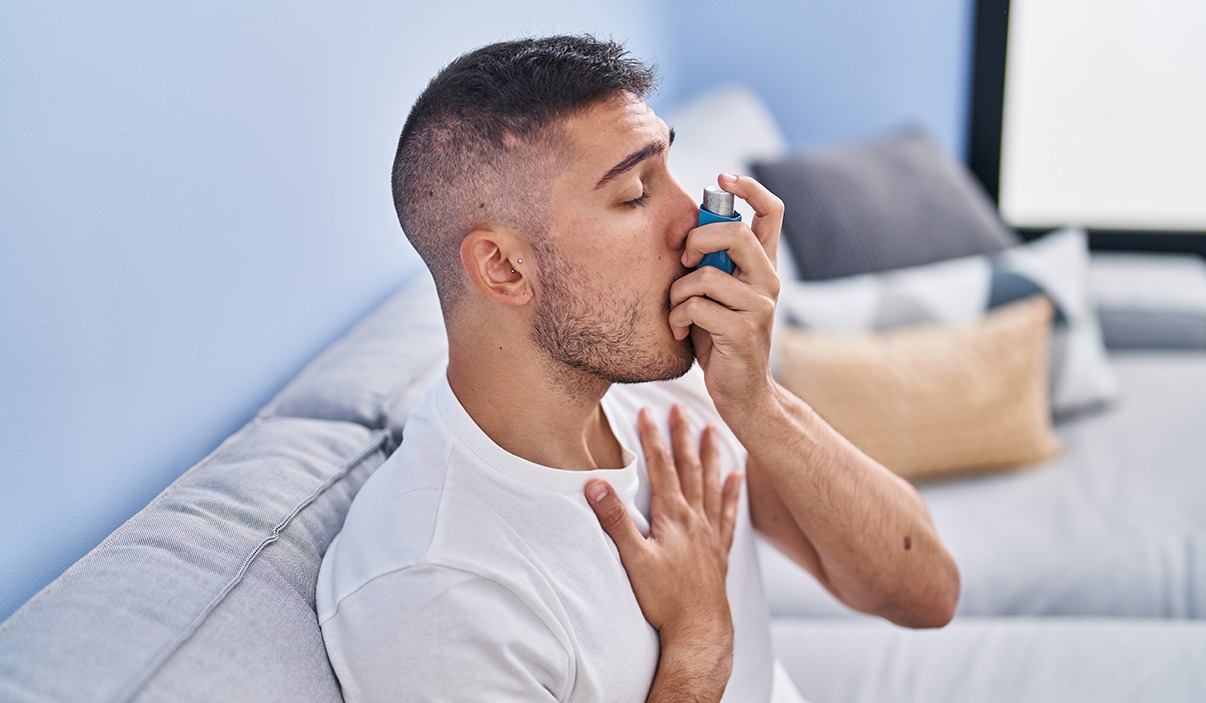- +91 8921713940
- 3rd Floor, Mamson Prime, Kunnumpuram, Edappally, Ernakulam
Sleep Disorder/Snoring Clinic
- Home
- Sleep Disorder/Snoring Clinic
Sleep Disorder/Snoring Clinic
Once the underlying causes of your sleep issues are identified, our specialists develop personalized treatment plans tailored to address your individual needs. We offer a variety of treatment options, from Continuous Positive Airway Pressure (CPAP) therapy for sleep apnea to behavioral interventions and lifestyle modifications aimed at improving sleep hygiene. Our approach includes ongoing support and follow-up care to ensure that treatment remains effective and that you achieve optimal sleep quality. By focusing on both immediate relief and long-term solutions, we are dedicated to helping you achieve restful, uninterrupted sleep and enhance your overall well-being.
Symptoms Breakdown of Snoring and Sleep Disorders
Understanding the symptoms of sleep disorders like snoring and sleep apnea is crucial for early intervention and treatment. Often, individuals may not realize that their symptoms are part of a broader issue, such as obstructive sleep apnea (OSA). Early diagnosis can help prevent further health complications, such as cardiovascular problems or diabetes.
Common Symptoms of Snoring and Sleep Apnea
1. Loud Snoring
Snoring occurs when airflow through the mouth or nose is partially blocked during sleep, causing vibrations in the throat. While snoring is common, loud or chronic snoring can indicate a more serious condition like sleep apnea.
Signs to Watch For:
- Regularly loud snoring that disturbs your sleep or the sleep of others.
- Snoring that is punctuated by periods of silence, followed by gasps for air.
- Snoring that worsens when sleeping on your back or after consuming alcohol.
Why It Matters: While occasional snoring might not be harmful, loud, chronic snoring is often a sign of obstructive sleep apnea (OSA), a condition where the airway is repeatedly blocked during sleep, leading to frequent awakenings and reduced oxygen levels in the blood.
2.Gasping for Air During Sleep
Individuals with sleep apnea often experience interruptions in their breathing while sleeping. This can manifest as gasping for air or choking sounds, followed by brief awakenings.
Signs to Watch For:
- Waking up with a feeling of breathlessness or choking.
- A partner noticing you stop breathing during the night, followed by a sudden gasp or snoring resumption.
Why It Matters: These episodes suggest that the airway is becoming obstructed, leading to a decrease in oxygen levels. This can lead to significant cardiovascular risks, such as increased blood pressure and heart strain.
3. Excessive Daytime Sleepiness
Excessive daytime sleepiness (EDS) occurs when you feel overly tired during the day despite having what seems like enough sleep at night. People with untreated sleep apnea often experience fragmented sleep, leading to poor rest and daytime fatigue.
Signs to Watch For:
- Difficulty staying awake during meetings, while driving, or even during conversations.
- Needing to take naps during the day because of feeling tired or lethargic.
- Falling asleep unintentionally during non-sleep activities (e.g., watching TV or reading).
Why It Matters: Daytime sleepiness can be a result of frequent waking during the night due to breathing interruptions. Chronic sleep deprivation due to untreated sleep apnea is linked to mood disorders, cognitive decline, and high blood pressure.
4. Difficulty Staying Asleep
People with sleep apnea may wake up several times throughout the night due to airway obstruction, resulting in fragmented sleep. This leads to trouble falling back asleep or staying asleep.
Signs to Watch For:
- Waking up multiple times throughout the night, often with difficulty resettling.
- Waking up feeling unrested or not refreshed.
- Frequent trips to the bathroom during the night.
Why It Matters: This fragmented sleep can prevent the body from reaching restorative sleep stages (such as deep sleep), where most healing and rejuvenation occur. It is a common symptom of sleep apnea and can exacerbate fatigue and other health issues.
5. Morning Headaches
Morning headaches are a common complaint for individuals with untreated sleep apnea. These headaches are caused by a lack of oxygen during the night and a build-up of carbon dioxide.
Signs to Watch For:
- Waking up with a headache that persists for several hours.
- A dull or throbbing headache concentrated around the temples or forehead.
Why It Matters: Morning headaches are often linked to poor oxygenation during sleep, which can be due to obstructive sleep apnea. The brain responds to low oxygen levels by dilating blood vessels, leading to headaches.
6. Irritability and Mood Changes
Sleep disturbances, including those caused by snoring and sleep apnea, can lead to irritability, mood swings, and other emotional symptoms. Poor sleep disrupts the balance of hormones that regulate mood.
Signs to Watch For:
- Feeling more irritable or anxious than usual.
- Trouble concentrating or feeling mentally foggy.
- Increased feelings of depression or stress.
Why It Matters: Sleep deprivation caused by untreated sleep disorders can significantly impact mental health, increasing the risk of anxiety and depression. Improving sleep quality through treatment can help alleviate these emotional symptoms.
7. Dry Mouth or Sore Throat Upon Waking
People who snore or suffer from sleep apnea may breathe through their mouth while sleeping, which can dry out the mouth and throat.
Signs to Watch For:
- A dry mouth or sore throat in the morning, especially if you wake up feeling parched.
- The need to drink water immediately after waking up.
Why It Matters: Mouth breathing during sleep is often a result of nasal obstructions or sleep apnea. This can lead to discomfort and even exacerbate issues like snoring.
8. Increased Blood Pressure
Sleep apnea, especially when left untreated, is a major risk factor for high blood pressure. This occurs because the repeated drops in oxygen levels during the night put strain on the cardiovascular system.
Signs to Watch For:
- Regularly elevated blood pressure readings, even if you are not overweight or sedentary.
- Heart palpitations or unexplained chest discomfort.
Why It Matters: High blood pressure increases the risk of heart disease and stroke. Those with sleep apnea should regularly monitor their blood pressure and seek treatment to reduce the risk of these complications.
Comprehensive Diagnosis and State-of-the-Art Technology
Our approach begins with a thorough evaluation using state-of-the-art technology and comprehensive assessments. We employ advanced diagnostic tools, such as polysomnography (sleep studies) and home sleep apnea testing, to monitor and analyze your sleep patterns, breathing irregularities, and other factors contributing to sleep disturbances. By accurately diagnosing the specific type of sleep disorder you are experiencing, we can tailor a treatment plan that addresses your individual needs.
Personalized Treatment Plans
Once a diagnosis is established, our team of specialists develops personalized treatment plans designed to improve your sleep quality and address the root causes of your sleep issues. Our treatment options may include:
- Continuous Positive Airway Pressure (CPAP) Therapy: For patients with sleep apnea, CPAP therapy is a highly effective treatment that helps keep the airways open during sleep, ensuring uninterrupted breathing and restful sleep.
- Lifestyle Modifications: We provide guidance on lifestyle changes that can significantly improve sleep quality, such as weight management, dietary adjustments, and sleep hygiene practices.
- Behavioral Therapy: Cognitive-behavioral therapy for insomnia (CBT-I) is an evidence-based approach that addresses the thoughts and behaviors contributing to insomnia, helping you develop healthier sleep habits.
- Medical and Surgical Interventions: For severe cases or specific conditions, we may recommend medical or surgical interventions to address structural issues causing snoring or obstructive sleep apnea.
Our commitment to your sleep health extends beyond initial treatment. We offer ongoing support and follow-up care to monitor progress, adjust treatment plans as needed, and ensure that you are achieving the best possible outcomes. Our goal is to help you overcome sleep disorders, reduce snoring, and improve your overall quality of life.
Why Choose Our Sleep Disorder or Snoring Clinic?
- Expert Team: Our clinic is staffed with experienced sleep specialists who are dedicated to providing high-quality care and effective treatments.
- Advanced Technology: We use the latest diagnostic tools and treatment technologies to ensure accurate assessments and successful outcomes.
- Comprehensive Care: From diagnosis to treatment and follow-up, we offer a full spectrum of services to address all aspects of sleep disorders.
- Patient-Centered Approach: We prioritize your comfort and well-being, working closely with you to develop and implement a personalized treatment plan.
If you are struggling with sleep disorders or excessive snoring, reaching out to the Sleep Disorder or Snoring Clinic at Apex Pulmonology could be the key to restoring your quality of life. Our specialized clinic is dedicated to diagnosing and treating a range of sleep-related issues, from chronic snoring to complex sleep disorders such as sleep apnea and insomnia. Our expert team, comprising experienced pulmonologists and sleep specialists, is committed to providing thorough evaluations and personalized treatment plans tailored to your specific needs. By addressing these issues effectively, we aim to help you achieve restful, uninterrupted sleep, which is essential for overall health and well-being. Contact us today to take the first step towards a more restful and healthier sleep experience.
FAQs About Sleep Disorders and Snoring
Snoring is noisy breathing caused by partial airway blockage. Sleep apnea is a more serious condition where the airway repeatedly closes during sleep, leading to pauses in breathing and reduced oxygen levels.
Yes! Treatments like weight loss, changing sleep position, CPAP therapy, or mouthguards can reduce or eliminate snoring without surgery.
If your snoring is loud, accompanied by gasping, choking, or interrupted breathing, or if you feel excessively sleepy during the day, it may indicate sleep apnea. Consult a doctor for a diagnosis.
Obesity, anatomical issues, aging, genetics, and lifestyle factors like smoking and alcohol use can increase the risk of sleep apnea.
While sleep apnea cannot be cured, it can be managed with CPAP therapy, lifestyle changes, or surgery in severe cases.
Sleep on your side, lose weight, avoid alcohol and sedatives, and practice good sleep hygiene to naturally reduce snoring.
Yes, sleep apnea is more common in men, though women are also at risk, especially after menopause.
If you suspect sleep apnea, consult a doctor. A sleep study will help determine if you have the condition and guide treatment.
Yes, snoring may signal conditions like nasal issues, obesity, or cardiovascular problems, especially when combined with other symptoms like fatigue.
Treatment for children’s snoring may include addressing enlarged tonsils, nasal congestion, or using sleep positioning. In severe cases, a CPAP machine may be recommended








